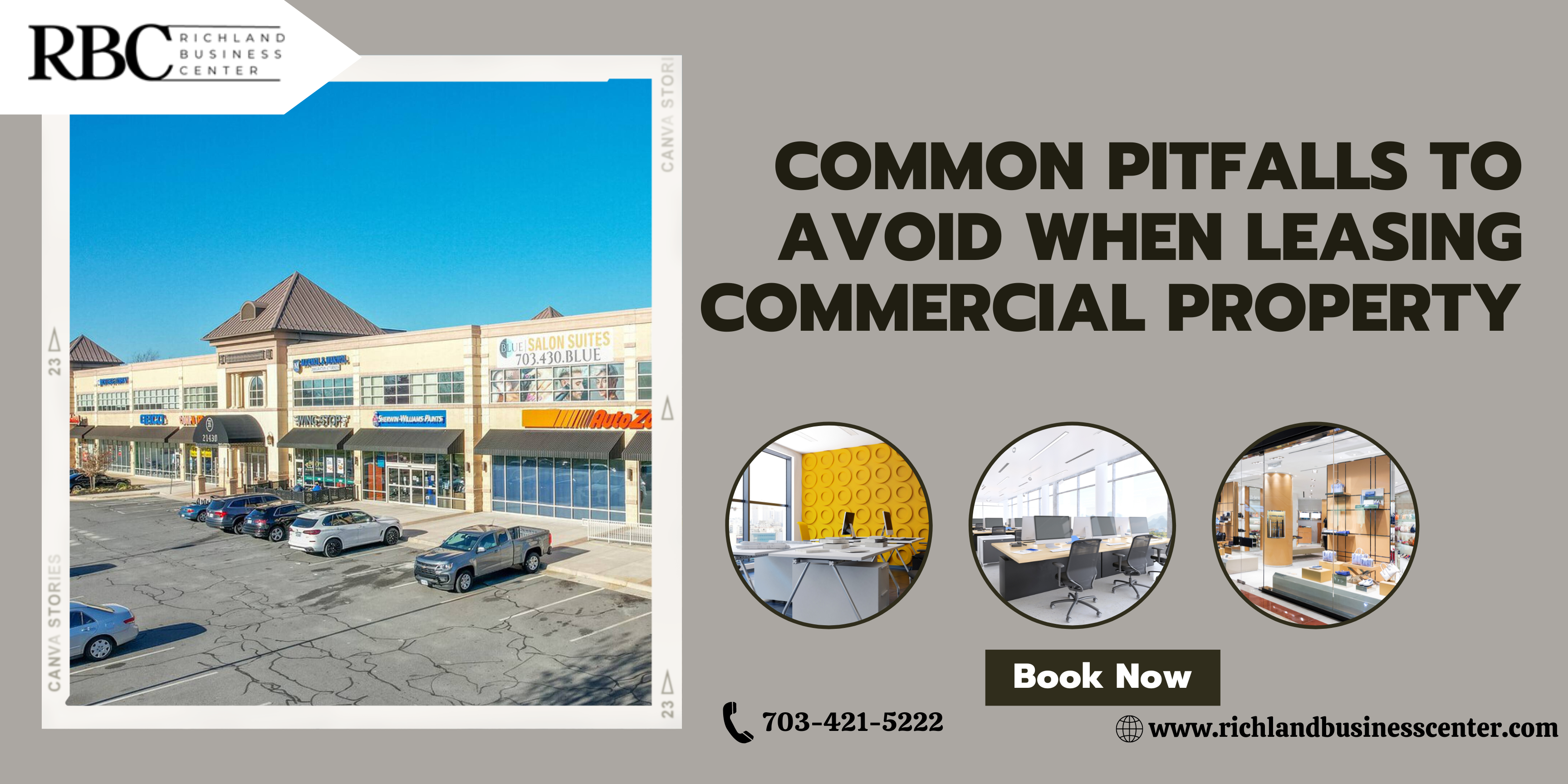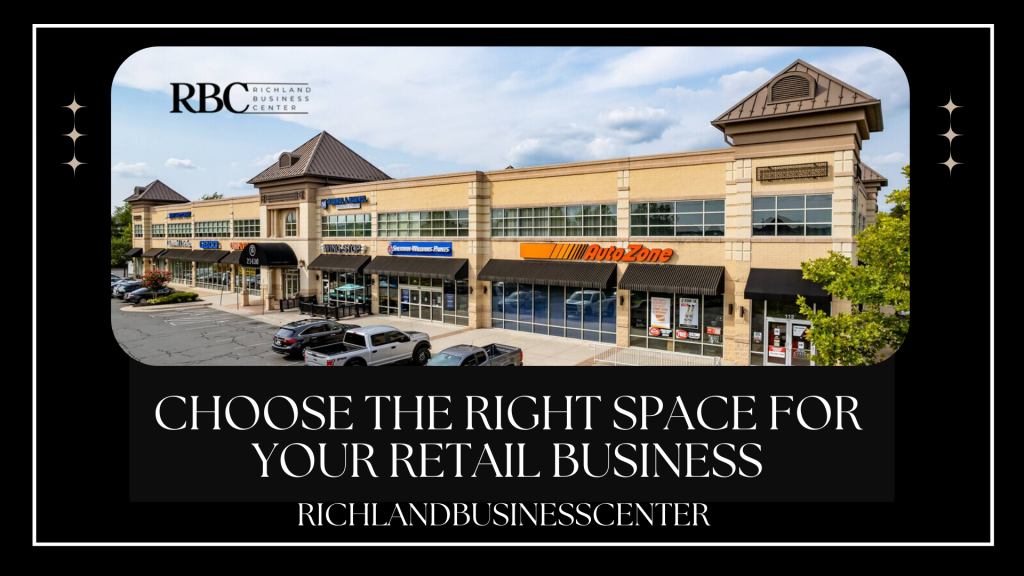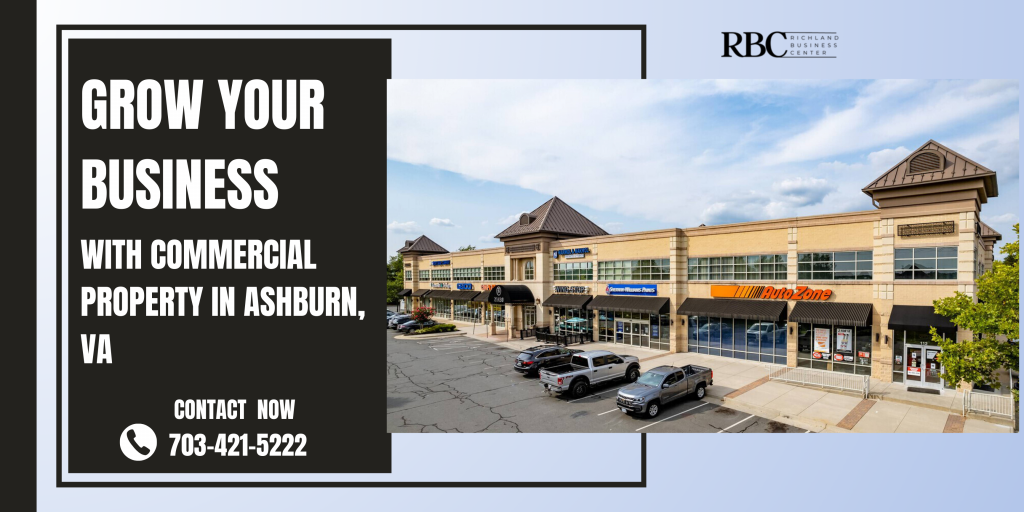Common pitfalls to avoid when leasing commercial property

Are you considering leasing commercial property for your business? While it may seem like a straightforward process, there are numerous pitfalls that can turn your leasing experience into a nightmare. From financial traps to legal complications and location dilemmas, understanding these pitfalls is crucial for securing a successful lease agreement. In this comprehensive guide, we’ll explore 20 common pitfalls to avoid when leasing commercial property, ensuring you’re well-equipped to navigate this complex terrain.
Overview of Leasing of Commercial Property
Commercial property leasing in Sterling, Virginia provides companies with a variety of chances for development and expansion. The Sterling commercial real estate market is vibrant and varied, offering everything from office space to retail stores and industrial facilities. Sterling is a great place for entrepreneurs to start or grow their businesses because of its advantageous location, first-rate infrastructure, and vibrant business environment. Sterling offers alternatives to meet every business need, whether you’re searching for modern office buildings with cutting-edge amenities or excellent retail space along busy commercial corridors. Businesses can take advantage of Sterling, Virginia’s thriving local economy and set themselves up for success in the cutthroat market by looking into the available commercial real estate for lease.
Financial Pitfalls
Let’s delve deeper into the “Financial Pitfalls” section of leasing commercial property:
- Overlooking Hidden Costs: Leasing commercial real estate frequently entails additional costs in addition to the monthly rent. These may include common area maintenance (CAM) fees, utilities, insurance payments, property taxes, maintenance fees, and even unforeseen repair expenses. Your company may experience financial instability and budgetary strain if these hidden expenditures are not taken into consideration.
- Negotiating Unfavourable Lease Terms: Entering into a lease too quickly without carefully negotiating advantageous terms may have long-term financial consequences. It is important to carefully negotiate lease terms, including rent hikes, length of lease, renewal possibilities, and common area maintenance (CAM) fees, to make sure they fit your business objectives and budget. Over the course of the lease, more costs and decreased profitability could arise from failing to negotiate favourable conditions.
- Ignoring Market Trends and Rates: It’s crucial to learn about the most recent rental rates and market trends in the area where you’re thinking about renting commercial real estate. Ignoring market dynamics may cause you to overpay for your rental space or to rent in a location where demand is lower or property prices are dropping. You may make judgments that are in line with your budget and business goals by keeping up with market trends.
- Underestimating Budget Allocation: Allocating a budget effectively is essential when renting commercial real estate. Not setting aside enough money for lease-related costs might put you in a difficult financial situation and make it more difficult for your company to run efficiently. To establish your budget for leasing charges and account for any swings or unforeseen costs, a thorough financial analysis is important. Underestimating your budget’s allotment could put your company in financial jeopardy and leave you unable to pay bills.
Legal Pitfalls:
When it comes to leasing commercial property, navigating the legal landscape is critical to protecting your interests and avoiding potential pitfalls. Here’s a deeper dive into the legal pitfalls you may encounter:
- Misinterpreting Lease Agreements: Long, intricate contracts full of legalese are frequently used in lease agreements. There could be dire repercussions if any clause or term in the agreement is misunderstood or misinterpreted. Disagreements between landlords and renters may arise later on, for instance, if provisions concerning rent hikes, subleasing rights, or property maintenance requirements are disregarded.
- Failing to Address Liability Issues: Commercial leases usually have clauses defining who is responsible for what in the event of accidents, property damage, or legal problems. If you don’t carefully go over and discuss these liability conditions, you could be taking a big financial risk. If there aren’t clear boundaries between who is responsible for what, you can end up footing the bill for any repairs, legal bills, or even litigation that result from mishaps on the rented property.
- Overlooking Zoning Regulations: The use of commercial premises in a given area is governed by zoning laws. There could be major legal repercussions from disobeying or breaking these rules, such as fines, injunctions, or being compelled to close your firm. Before you sign the lease agreement, it’s important to make sure the property you’re leasing is zoned suitably for the purpose you have in mind and to get any required permissions or approvals.
- Not Seeking Legal Advice: Commercial property leasing entails a large financial commitment and often complicated legal ramifications. If you don’t consult a knowledgeable legal expert, you could end up making expensive errors. A knowledgeable lawyer can examine the lease, spot any dangers, and give you advice on how to safeguard your rights and interests at every stage of the leasing process.
By paying close attention to these legal pitfalls and seeking appropriate legal counsel, you can minimize your exposure to risk and ensure a smoother, more secure leasing experience.
Location and Accessibility Pitfalls:
Location Pitfalls:
When it comes to renting commercial real estate, the space’s accessibility and location are critical to your company’s success. The location and accessibility concerns that firms should be aware of are explained in more detail below:
- Choosing Inadequate Location: Selecting the right location is paramount for the success of your business. An inadequate location may lack visibility, foot traffic, or be inaccessible to your target market. For example, leasing a retail space in a remote area with low consumer traffic can hinder your ability to attract customers and generate sales.
- Ignoring Accessibility Needs: Accessibility encompasses factors such as proximity to major roads, public transportation options, parking availability, and ADA compliance. Ignoring these factors can limit the accessibility of your business to potential customers and employees. For instance, leasing office space without adequate parking or public transit options can make it challenging for employees to commute and for clients to visit your office.
- Not Considering Future Development Plans: It’s essential to consider the future development plans for the area surrounding your leased property. Changes in infrastructure, zoning regulations, or nearby construction projects can impact the desirability and accessibility of your location. For instance, leasing space in an area slated for major construction projects or infrastructure upgrades may result in disruptions to your business operations and accessibility.
- Overlooking Demographic Analysis: Understanding the demographic profile of the area surrounding your leased property is crucial for targeting your desired customer base. Overlooking demographic analysis can lead to mismatches between your business offerings and the needs and preferences of local consumers. For example, leasing retail space in an area with a predominantly elderly population when your target market is young professionals may result in low foot traffic and sales.
Accessibility Pitfalls:
- Limited Transportation Options: Being easily accessible involves more than just being close by; it also involves being easily accessible by a variety of means of transportation. Renting a space with few transit options—such as one with inadequate access to public transportation or one without close access to a highway—can discourage clients and staff from coming to your place of business.
- Parking Challenges: Customers may avoid your business if you have inadequate parking facilities or charge exorbitant parking rates. Foot traffic and customer satisfaction may suffer when a property is leased with insufficient parking spaces or with parking restrictions that are too restrictive.
- ADA Compliance Issues: Legal ramifications and obstacles to accessibility for people with disabilities may result from noncompliance with the Americans with Disabilities Act (ADA). Leasing an un ADA-compliant property or neglecting to implement the required accessibility improvements might land your company in legal hot water and harm its brand.
- Limited Visibility: To draw in passing traffic and potential clients, your business site must be visible from main thoroughfares and pedestrian zones. Renting a space with poor visibility or hidden signage might make it difficult for clients to find your company and lower your profile in the neighbourhood.
In summary, businesses must carefully evaluate the location and accessibility of commercial properties before leasing to avoid potential pitfalls. By considering factors such as location desirability, accessibility needs, future development plans, and demographic analysis, businesses can select a property that maximizes their visibility, accessibility, and success in the market.
Property Condition Pitfalls:
Property condition pitfalls are problems with the actual physical state of the commercial real estate that is leased. Ignoring these dangers might result in unforeseen costs, legal problems, and interruptions to your company’s operations. Here’s a closer look at each component:
Tenant Relationship Pitfalls
Tenant relationship pitfalls refer to challenges that can arise in the interaction between tenants and landlords during the duration of a lease agreement. These pitfalls can significantly impact the overall experience of leasing commercial property and may lead to dissatisfaction, disputes, or even termination of the lease. Here are some common tenant relationship pitfalls explained in more detail:
- Poor Communication with Landlord: To resolve problems, settle disputes, and guarantee a positive lease experience, landlords and tenants must communicate effectively. Misunderstandings can occur from poor or non-existent communication, which can cause stress and dissatisfaction amongst the parties. The tenant-landlord relationship may be strained, for instance, if maintenance requests are not promptly addressed or crucial information pertaining to the lease is not provided.
- Neglecting Tenant Satisfaction: When landlords don’t put tenant satisfaction first, they run the danger of losing important renters and having high turnover rates. When tenants’ requirements are not met—whether it’s by not offering promised amenities or swiftly attending to maintenance issues—it can cause unhappiness and create a bad impression of the property management. The landlord’s reputation and future ability to draw in and keep renters may be impacted as a result.
- Ignoring Tenant Retention Strategies: Landlords may incur high costs during tenant turnover since it frequently entails advertising openings, vetting potential new renters, and possibly long stretches of time without rental income. Ignoring tactics to keep current renters, such providing incentives for a lease renewal or proactively addressing issues, can lead to needless turnover and financial loss for the landlord.
- Not Addressing Tenant Complaints Promptly: In order to keep tenant complaints from becoming more significant problems, it is important to handle them quickly and properly. Tenant complaints that are ignored or dismissed may cause animosity and unhappiness, which may motivate tenants to take legal action or prematurely end their lease. Landlords may cultivate good connections with tenants and preserve a peaceful rental environment by promptly and politely handling complaints.
In summary, tenant relationship pitfalls highlight the importance of effective communication, tenant satisfaction, retention strategies, and prompt resolution of tenant complaints in maintaining a positive and mutually beneficial relationship between tenants and landlords. By prioritizing these aspects of tenant management, landlords can mitigate potential conflicts and create a conducive environment for long-term tenant satisfaction and lease stability.
Conclusion
Frequently Asked Questions
Q1. What are the crucial lease terms to scrutinize?
Ans: This question addresses the essential components of a lease agreement that tenants should thoroughly review before signing. Key lease terms include rent amount and escalation clauses, lease duration and renewal options, maintenance and repair responsibilities, insurance requirements, and any additional fees or charges.
Q2. How can one negotiate a favourable lease agreement?
Ans: Negotiating a favourable lease agreement involves understanding your business needs, conducting market research to assess rental rates and terms, and effectively communicating your requirements to the landlord. It also requires careful consideration of lease terms and conditions, as well as seeking legal advice to ensure the agreement aligns with your best interests.
Q3. What should tenants consider before signing a lease?
Ans: Before signing a lease, tenants should consider various factors such as the location’s suitability for their business, the condition of the property, lease terms and conditions, potential hidden costs, zoning regulations, and the landlord’s reputation and responsiveness. Conducting thorough due diligence and seeking professional advice can help tenants make informed decisions.




